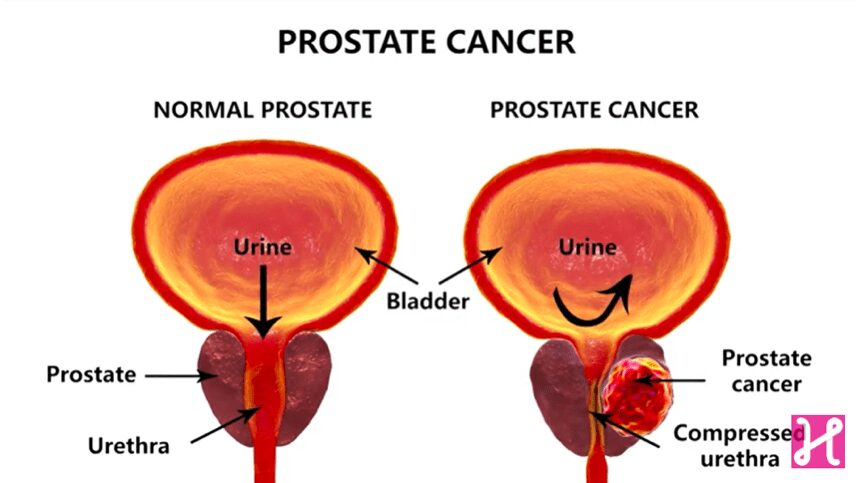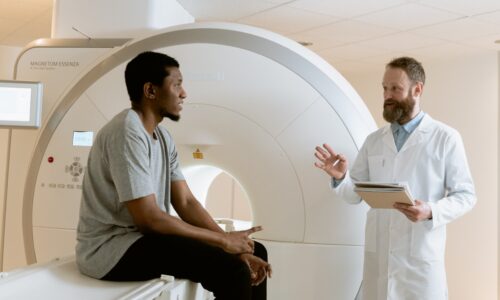Understanding Prostate Cancer |

In an episode of Doctor Q & A on the Health Channel, Dr. Michael Poch, a urologist at Moffitt Cancer Center, answers viewer-submitted questions about prostate cancer. One viewer, Beth, calls in and asks the doctor, “In the instance somebody is diagnosed with prostate cancer, does the prostate always have to be removed? And if so, is it possible for that person to still be intimate?”
Dr. Poch replies by assuring Beth that prostate removal is not the only solution to a prostate cancer diagnosis. It depends on the stage and grade of the cancer. “So that’s the first thing we usually do when we evaluate prostate cancer: We grade the cancer and we stage the cancer,” Dr. Poch explains. For patients who have a localized cancer, meaning cancer that’s just in the prostate, and it is low grade, meaning it is not very aggressive, treatment will consist of heavily monitoring the cancer. Dr. Poch elaborates, “What we’ll do is we’ll watch that prostate cancer because patients are more likely to have cardiac events, stroke events, etc. that are the cause of their mortality or morbidity down the road. We call that strategy Active Surveillance.” Dr. Poch continues to describe the procedures of Active Surveillance, “Patients get routine PSA tests. They get routine prostate exams. A lot of times they’ll get additional imaging, MRIs of the prostate to evaluate those tumors to see if there’s change. Frequently, they’ll get repeat biopsies every one to two years to see if there’s physical change on the needle biopsy.”
Prostate cancers that need treatment can be treated in ways that do not include surgery. Most commonly, it would be treated with radiation. Radiation treatment can be done with radioactive seeds or external beam radiation treatment.
Watch the full segment of Dr. Michael Poch discussing Prostate Cancer, here: https://youtu.be/7torI9o9W2A. To learn more about prostate cancer research, visit the Prostate Cancer Foundation’s website at: pcf.org








